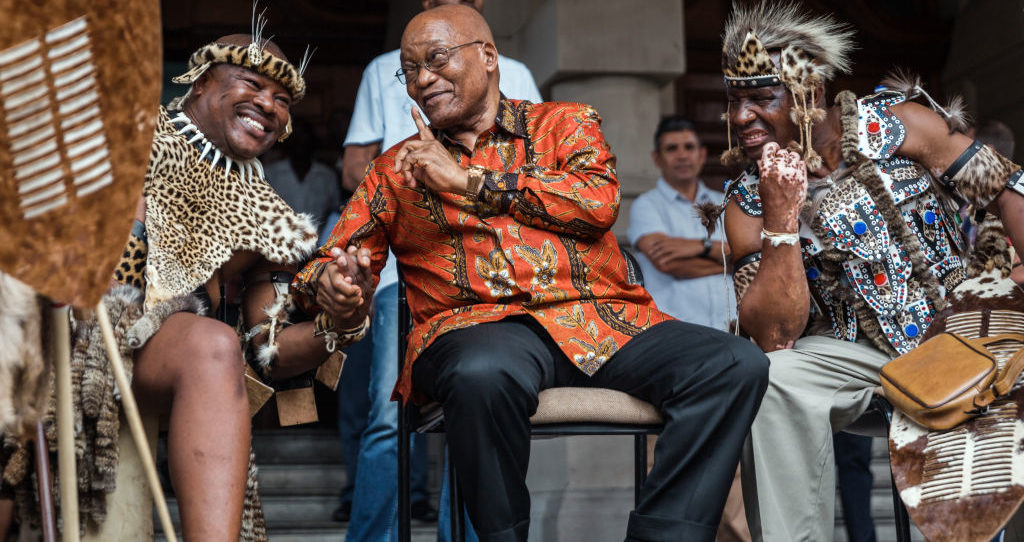It was a moment South Africans thought would never come. On Tuesday the Constitutional Court sentenced former president Jacob Zuma to 15 months in prison, after he refused to testify at an inquiry into corruption during his time in office.
When that inquiry reaches its conclusion, Zuma could face a much longer sentence — an amazing prospect. For now though, the simple willingness of the court to punish such blatant recalcitrance offers tantalising hope that the rule of law is not dead in South Africa.
The verdict was surprising given that Zuma still commands a significant power base in the ruling African National Congress party. The eye-watering levels of graft that marked his 2009-18 presidency means there are plenty of ANC figures at every level of government who want the anti-corruption drive of his successor, Cyril Ramaphosa, to fail.
And therein lies the more ominous question posed by Tuesday’s ruling. Even if Zuma hands himself over to the authorities as instructed, he won’t do it quietly. So could this lead to an escalation of the already murderous internal politics of the ANC – an all-out civil war within the party that drags the nation into the abyss?
The Zuma presidency was a waking nightmare for those of us who prayed that, after its miraculously peaceful transition from apartheid to democracy, South Africa’s governing elite would resist the slide into gangsterism which has squandered the potential of so many African nations. This was always a danger with the ANC because, being the party of Mandela and the heroic anti-apartheid struggle, it was destined to rule virtually unopposed during the first decades of democracy.
Zuma’s infamous Nkandla homestead in KwaZulu-Natal, for which he fleeced the public purse to the tune of £14 million, offers a flavour of his regime’s conspicuous venality. More serious was his gutting of the criminal justice system, paving the way for the kind of corruption that would make a hardened kleptocrat blush. At the current inquiry, witnesses have lined up to detail how Zuma effectively handed control of much of the state to a notorious trio of shady businessmen known as Gupta brothers. Apparently these cronies installed government ministers, siphoned money from state-owned companies and cashed-in on lucrative contracts. Prosecutors claim as much as £50 billion was swindled from state coffers.
With the ANC having lost ground in recent elections, Ramaphosa’s campaign to clean up the party might be a sign of democratic pressures finally kicking in. More cynically, we might note that the president needs to purge Zuma’s faction to consolidate his own leadership. At any rate, Ramaphosa knows corruption has to be addressed if South Africa is to attract the investors it sorely needs. Youth unemployment stands at a grim 75%, while millions of its citizens have only the most rudimentary housing and sanitation. Its tax base continues to shrink as wealthier citizens flee appalling levels of violent crime.
By insisting that Zuma be subject to the law, the Constitutional Court’s latest ruling suggests a positive outcome to this saga is still possible. But it remains far from clear what direction the ANC’s internal struggle will take — and ultimately, it’s this struggle that will determine the country’s future.











Join the discussion
Join like minded readers that support our journalism by becoming a paid subscriber
To join the discussion in the comments, become a paid subscriber.
Join like minded readers that support our journalism, read unlimited articles and enjoy other subscriber-only benefits.
Subscribe